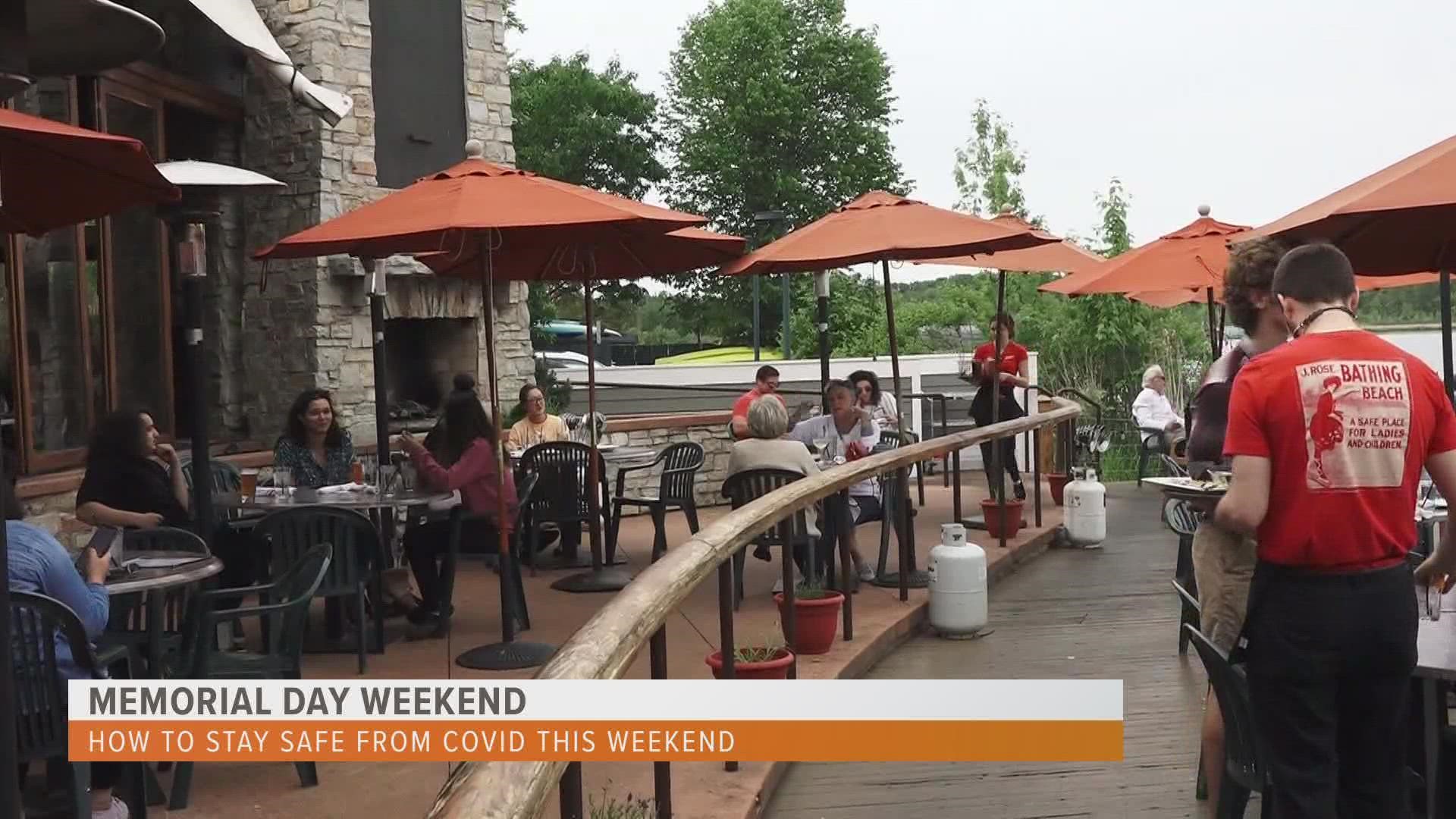GRAND RAPIDS, Mich. — COVID-19 numbers are trending in the right direction across Michigan. After increasing for six weeks, hospitalization and case rates have declined slightly this week in the Wolverine State.
Michigan Department of Health and Human Services reported 25,968 cases and 139 deaths from COVID-19 on Wednesday, including totals from the previous six days.
With over 1.1 million Michiganders expected to travel for the holiday weekend, health officials and doctors alike are reminding people to take the necessary precautions to protect themselves from COVID.
Dr. Justin Skrzynski of Beaumont Health said the best way to do so is being outside.
Skrzynski said summer months are typically when we see the lowest COVID numbers because it difficult to pass the virus around outdoors, especially if it's a small amount of people that are gathering.
Skrzynski warned if you are in the high-risk group, you may want to take a few extra precautions. Nevertheless, he said enjoy the holiday weekend, just be smart while doing so.
"So, we can never say that it's no risk, obviously. But at the same time, compared to a bar, a restaurant, a densely packed indoor area, being outdoors is much more safe," said Skrzynski. "Now, if you're still one of the high-risk groups, so elderly, chronically ill, immune compromised, those people should still be more aware of who's going to be there. Even things like masking outdoors might be a good idea if you're in that high-risk group. And then of course, vaccinations always a very, very reassuring thing to have whenever you're going to crowds."
Skrzynski said we're in what's called the endemic phase, which means COVID is circulating throughout the community from person to person. He said the real concern is in the fall when everyone is back in doors. Will we see numbers shoot up again? He said only time will tell.
Skrzynski reiterated proper hygiene and being fully vaccinated and boosted are the best ways to make sure you are safe. He explains exactly what that means to be fully vaccinated and boosted.
"It's kind of a little bit convoluted in terms of vaccinations and boosting and what's fully vaccinated versus what's up to date," said Skrzynski. "And the bottom line is, obviously get the initial series. That's the most important part. Five months after that, that's when you're due for the booster."
Skrzynski added, "In terms of that fourth shot, right now, the indication is 50 and older and immunocompromised. My assumption is that later on, especially if numbers remain high over the summer, is that we'll see that first shot open up to everybody. But right now, again, it's that particular age group that seems to be most vulnerable."
►Make it easy to keep up to date with more stories like this. Download the 13 ON YOUR SIDE app now.
Have a news tip? Email news@13onyourside.com, visit our Facebook page or Twitter. Subscribe to our YouTube channel.

